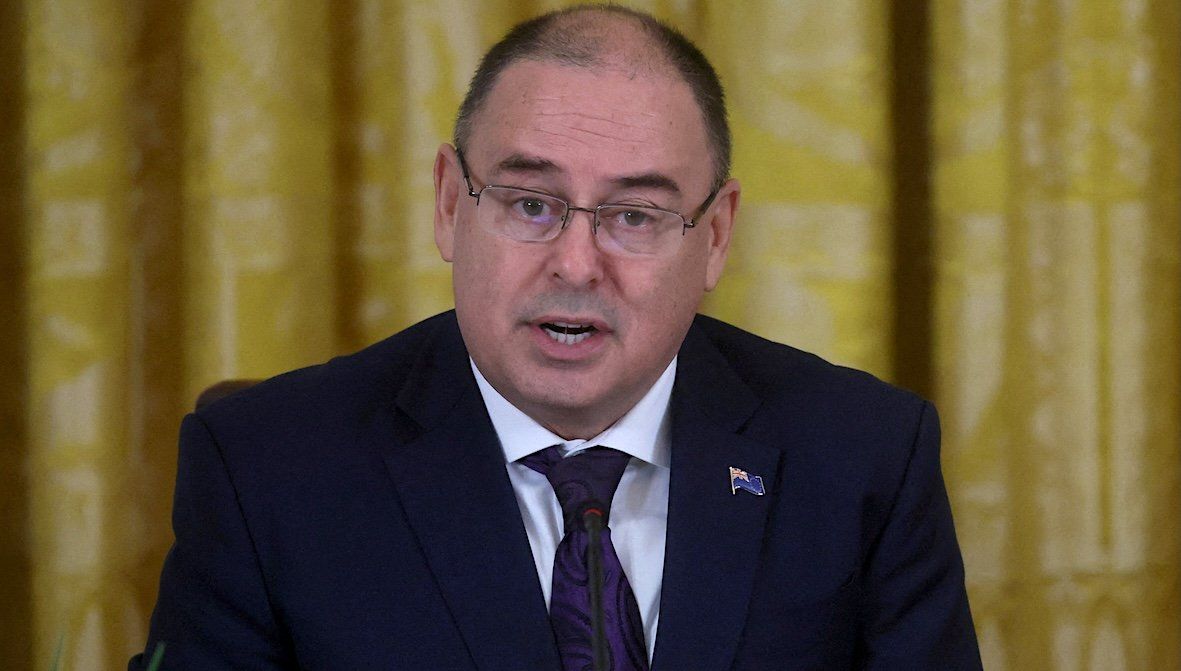Prime Minister of the Cook Islands Mark Brown, seen here at the White House in Washington, in 2023.
The Cook Islands’ recent entry into a strategic partnership with China has spawned protests in front of Parliament, angered long-time ally New Zealand, and this week, nearly toppled the islands’ government.
On Wednesday, Cooks Prime Minister Mark Brown survived a 13-9 no-confidence vote. Opposition legislators were angry that Brown did the deal with Beijing in secret, jeopardizing the country’s long-standing relationship with Wellington, which New Zealand Foreign Minister Winston Peterssaid will now have to be “reset.” Brown’s partnership with China also follows an unsuccessful pitch last December to create a Cooks passport and citizenship, which also did not sit well with both Kiwis and islanders.
What is the Cooks’ connection with NZ? The Cooks became partially independent in 1965, but its 15,000 residents receive NZ citizenship and passports and use the NZ dollar. New Zealand has also committed over US$57 million in aid since 2022 and supports both foreign affairs and defense.
What did China offer? Beijing pledged a five-year “action plan,” including $4 million for education, the economy, infrastructure, fisheries, disaster management, and, most controversially, seabed mining for nodules rich in nickel and cobalt.
China’s larger agenda The Cooks are just the latest South Pacific nation to sign a deal with Beijing. Kiribati has signed a series of development agreements in recent years, even hosting Chinese police stations, as have the Solomon Islands. China has also persuaded both countries, as well as nearby Nauru, to switch diplomatic recognition from Taiwan to the mainland.